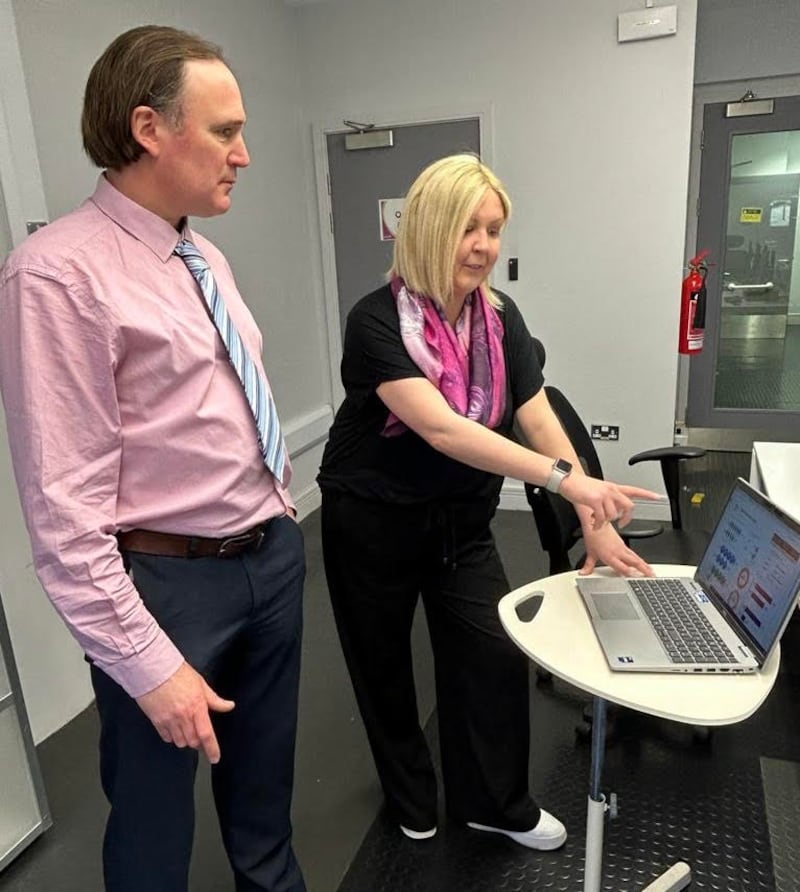MORE than 14,000 people a year are expected to be diagnosed with cancer by 2040 in Northern Ireland, a health expert has said.
In May, the latest research from the Northern Ireland Cancer Registry (NICR) found that annual diagnosis rates passed 10,000 for the first time in 2021 – expected to increase with a growing and ageing population.
While survival rates have improved significantly in recent decades, “unacceptable” waiting lists and persisting health inequalities still put too many people at an increased risk.
Progress on a regional cancer strategy and health reform is trying to address this – but the NICR figures show the most socially deprived areas had a 12.6% higher rate of diagnosis than the Northern Ireland average, with the least deprived areas being 5.2% below.
Speaking to the Irish News, NICR Director Dr Damien Bennett said the trends showed the urgency of preventative care.
“There’s over 71,000 survivors living with cancer in Northern Ireland, with the highest for men in prostate cancer (over 12,000) and breast cancer (over 17,000) for women,” he said.
“What we’re finding increasingly, is that if the disease is picked up at an early stage people can still live long and productive lives.
“That’s why you’ve got such high surviving numbers, it’s not the death sentence it was 50 years ago.”

He added: “By 2040, there will be over 14,000 diagnosis. So undoubtedly over time, we will be dealing with increased numbers of cancers because of the ageing population.”
“It’s great that our survivorship is improving, but what that means is that patients will need surveillance maintained for a long time.”
Last week, the international health expert Raphael Bengoa returned to Northern Ireland – offering encouragement as the Health Minister Mike Nesbitt attempts to reform hospital services and increase preventative care.
“I have hope but I’m worried as well if that makes sense,” Dr Bennett said about the latest efforts.
“I don’t think there will be a simple solution to healthcare reform.
“If someone was to ask me what healthcare will be like in 20 years, I don’t think anyone could give you an honest answer.”

He said key areas included early diagnosis for cancer patients, managing co-morbidities in older patients and, most immediately, staffing pressures.
With a public health background, he said the increase of cancer in deprived areas was a much wider issue.
“We often call these ‘wicked issues,’ because they’re so difficult. It’s not just one thing.
“It might seem counterintuitive, but 70% of your health is nothing to do with healthcare.
“It’s actually about what you do in terms of diet, exercise, moderate alcohol use. Those are the core building blocks of a healthy society.”
He said uptake of screening and HPV vaccinations to prevent cervical cancer also tend to be lowest in these areas, even if services are close by.
“Sometimes people put that on the individual. But from a public health perspective, we say that if you’re living in a difficult environment at the top of a high-rise with no job or social support.
“You would find it difficult to live a healthy life, that’s a reality. That’s where the government needs to help.
“Can we look at taxation supporting healthier eating and lifestyles, just trying to nudge people along that way?”
“We’re having difficulty managing 10,000 patients now, but we really need to think about that as our population is getting older and our resources aren’t keeping up.”









